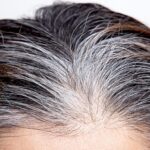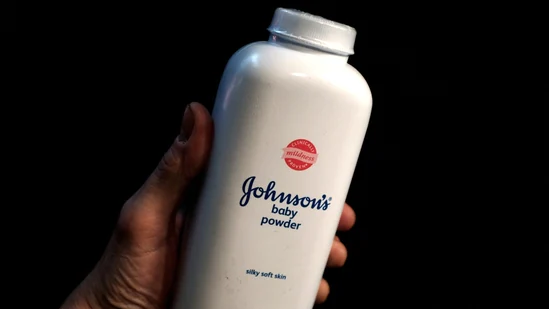Johnson & Johnson said they planned to stop selling baby-based baby battery products globally in 2023, a step that came in the midst of sustainable legal battles and years after the company stopped products in the US and Canada.
J&J said on Thursday that they had made a “commercial decision” to transmit all baby powder products to use corn flour instead of powder powder after conducting the portfolio assessment. The health conglomerate, which maintains this product is safe, for almost a decade of facing lawsuits that accuse him of hiding the risk of cancer binding powder -based baby powder.
“We continue to evaluate and optimize our portfolio to position the best business for long -term growth,” spokesman Melissa Witt said in a statement that was removed. “Today’s decision is part of a portfolio assessment worldwide, which evaluates several factors, including differences in demand for our products in all geographical areas and developing consumer trends and preferences.”
New Brunswick shares, a company based in New Jersey, rose less than 1% in post-market trade and has fallen 2.3% so far this year until the closure of Thursday.
In May 2020, when J&J navigated thousands of lawsuits that accused the product of causing some user cancer, the company attracted powder -based powder from the US and Canadian markets, quoting other “commercial decisions” based on sales decline.
“After several decades selling powder-based products, the company tofu can cause dead cancer for women and men who are not suspicious worldwide, J&J finally does the right thing,” Leigh O’Dell, a lawyer for former TALC users, said in Email that was sent to Thursday’s statement. “They stopped sales in North America more than two years ago. The delay in taking this step was unforgivable.”
Talcum powder
Powder has long been used in baby products because minerals keep the skin dry and prevent diaper rash. Mines that produce powder, however, can also produce asbestos, minerals that have been used in products such as building isolation that has been associated with researchers with cancer. Some consumer companies have found corn flour can offer the same talc benefits without asbestos risk.
J&J said on Thursday that “His position in our cosmetics powder security remains unchanged.”
Health conglomerates have spent years looking for ways to hold their legal obligations. This faces 40,300 lawsuits in the US on TALC -based powder, according to the company that submitted last month with the Securities Commission and the US Exchange.
J&J is looking for bankruptcy protection for the LLC LTL Management unit that was only made last year after arguing that they struggled to withstand lawsuits.
Trust $ 2 billion
The company places $ 2 billion into trust as part of the bankruptcy unit to complete all current and future powder claims. In February, a judge said the case could be continued to find a settlement, but the decision was filed an appeal.
Lawyers to former TALC users have challenged J&J’s steps to ask the unit to seek protection for Chapter 11 to handle the TALC unit. The federal appeal court in Philadelphia will hear the argument of the Plaintiff September 19 that the step is a submission of bankruptcy “bad faith” because they argue that the financial position of J&J is not threatened by powder litigation.
In submitting a court, J&J lawyers have noted that the company met with a stumbling block in resolving global settlement of powder cases and facing increased legal costs. Drug -making lawyers note that they pay more than $ 1 billion in legal costs over the past five years in powder cases and have to deal with inconsistent judges.
J&J has been forced to pay around $ 3.5 billion in resolution so far to resolve the powder case, according to the company’s bankruptcy submission. Jury Sentences 2018 Outside the State Court in St. Louis finally forced J&J to pay $ 2.5 billion to 20 women targeting their baby powder for their ovarian cancer. Both the Supreme Court Missouri and the US Supreme Court refused to cancel the decision.
Meanwhile, J&J plans to break down the consumer health business into an independent company next year as a step that according to legal experts can help isolate the responsibility if the vehicle Chapter 11 does not work.


















